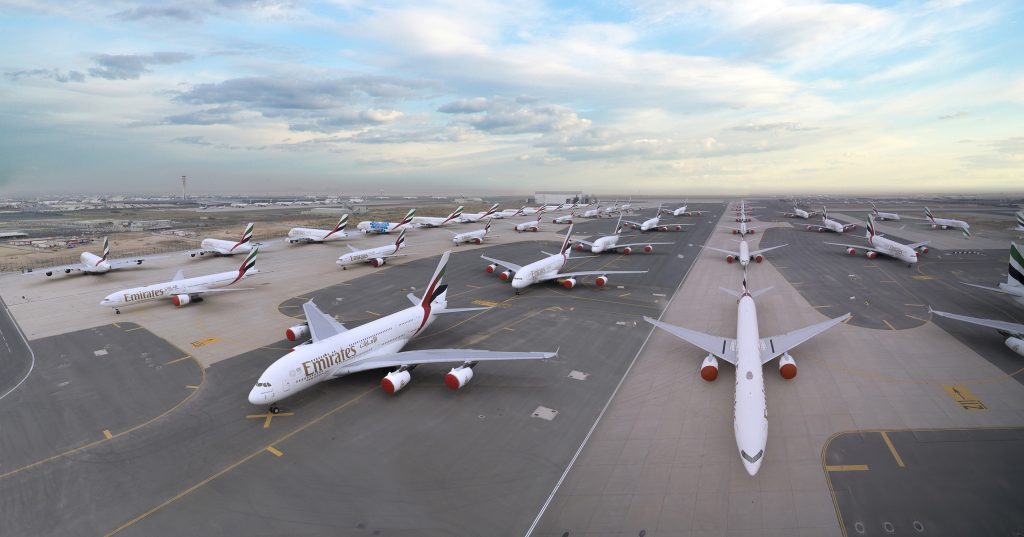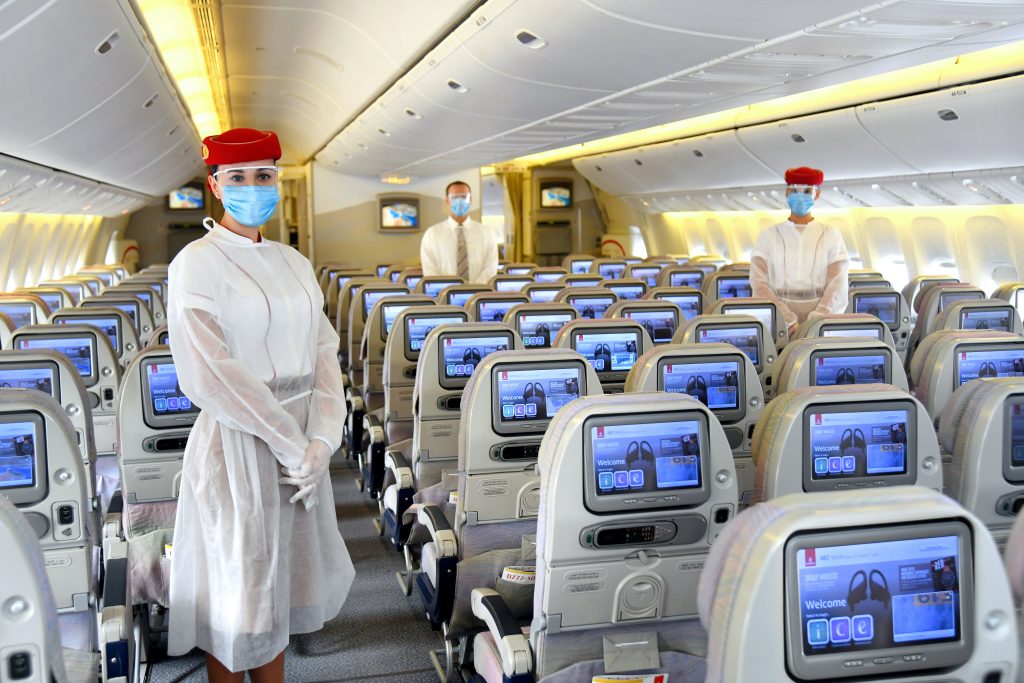
Emirates is said to be drawing up plans to permanently decommission 40 per cent of its Airbus A380 superjumbo fleet with a final decision likely to be officially announced within days according to several sources said to be familiar with the matter. The Dubai-based airline, which is by far the world’s largest operator of the A380 superjumbo, grounded its entire 115-strong fleet of double-deck planes on March 25 due to travel restrictions imposed by the government in response of the COVID-19 pandemic.
A total of 46 Airbus A380’s have now been earmarked to be permanently retired and may never fly passengers ever again. The decision comes less than two weeks after Sir Tim Clark, the longtime President of Emirates declared “the A380 is over”. In an interview with Gulf newspaper The National, Sir Tim warned that the airline would be 20 – 30 per cent smaller as it emerged from the Coronavirus crisis.

Emirates became one of the worlds first A380 operators in 2008 and still has eight of the superjumbos to be delivered from the European aircraft manufacturer Airbus. The airline had already announced plans last year to slowly start retiring the aircraft after Airbus decided to close down the A380 project but the secret plans now being developed would mark a significant acceleration in that process.
Emirates’ chairman and chief executive, Sheikh Ahmed bin Saeed Al Maktoum warned last week that the COVID-19 pandemic would have a “huge impact” on the airline’s financial performance for the year ahead, saying that it would “take aggressive cost management measures, and other necessary steps to safeguard our business.”
“We expect it will take 18 months at least, before travel demand returns to a semblance of normality,” Sheikh Maktoum said of the situation.
With the airline still grounded after more than eight weeks and only very limited services due to restart on May 21, sources claim Emirates is also drawing up plans to lay off around 30 per cent of its pilot and cabin crew workforce. Until now, Emirates hasn’t reported any redundancy plans unlike fellow UAE airline Etihad Airways and regional rival Qatar Airways.

The cuts, which represent the loss of around 7,500 cabin crew jobs alone, are said to be in the final stages of development and will be based on several factors. Cabin crew who could face the axe under the proposed plans include:
- Any member of cabin crew over the age of 60 years old
- Anyone with active disciplinary issues
- High sickness levels
- Poor performance records
Cabin crew are currently receiving three-quarter pay and pilots half-pay as part of efforts to reduce costs and this policy might be extended for three more months for those crew who do get to keep their jobs.
An Emirates spokesperson said in a written response that “no announcement has been made regarding mass redundancies.”
As a 100 per cent government-owned enterprise, Emirates has won support from the Crown Prince of Dubai, Sheikh Hamdan bin Mohammed bin Rashid Al Maktoum who reaffirmed the government’s commitment to the embattled airline in late March. Sheikh Hamdan said the government would inject additional liquidity to keep the airline afloat, although doubts have been raised about how much spare cash Dubai actually has.
In recent days, officials have been forced to deny allegations, first reported by Reuters, that it was in talks with Abu Dhabi for a multi-billion dollar bailout. Abu Dhabi previously approved a $10 billion loan to prop up Dubai after the 2009 financial crisis.
Emirates will resume regularly scheduled passenger flights to just nine destinations on May 21 but has walked back plans to restart services to as many as 150 cities by mid-July. All flights are being operated by Boeing 777 aircraft and Sir Tim has said the future for Emirates’ fleet is the Airbus A350 and Boeing 787 Dreamliner aircraft.
Edited to note difference in salary sacrifice between cabin crew and pilots.
Related
Mateusz Maszczynski honed his skills as an international flight attendant at the most prominent airline in the Middle East and has been flying ever since... most recently for a well known European airline. Matt is passionate about the aviation industry and has become an expert in passenger experience and human-centric stories. Always keeping an ear close to the ground, Matt's industry insights, analysis and news coverage is frequently relied upon by some of the biggest names in journalism.







